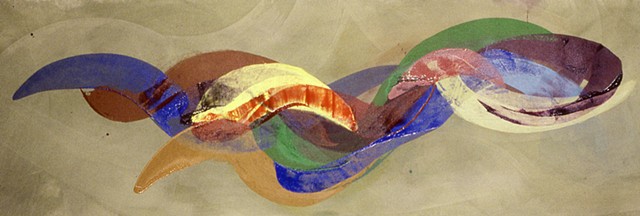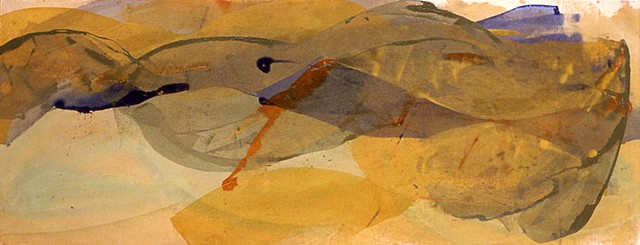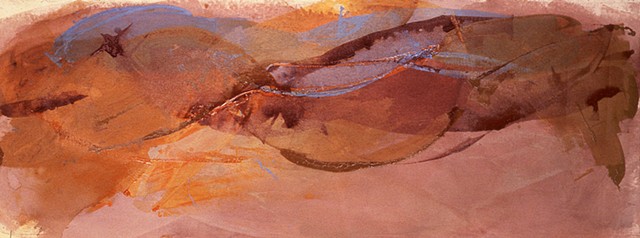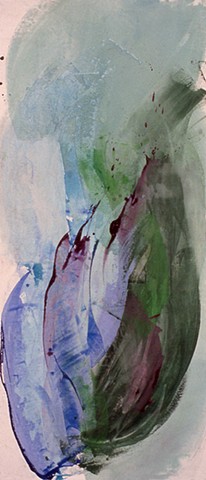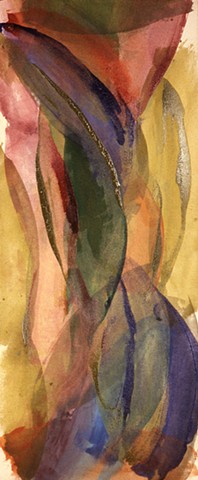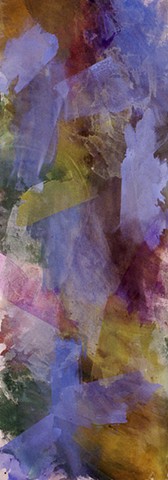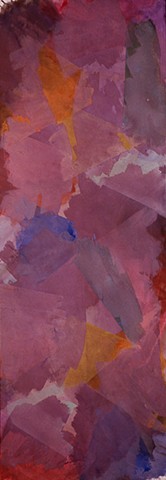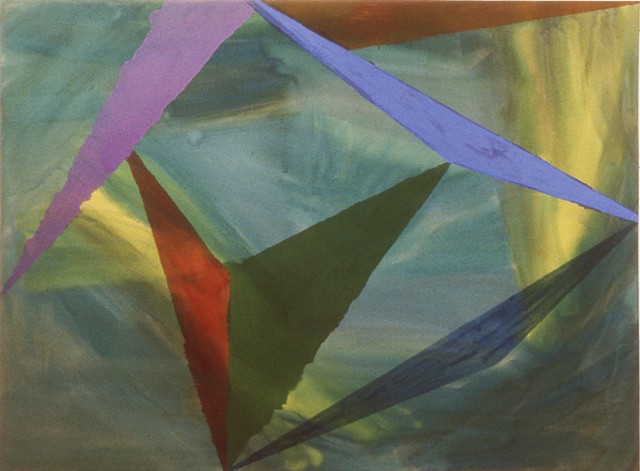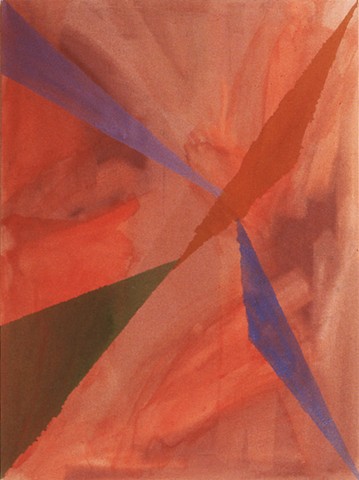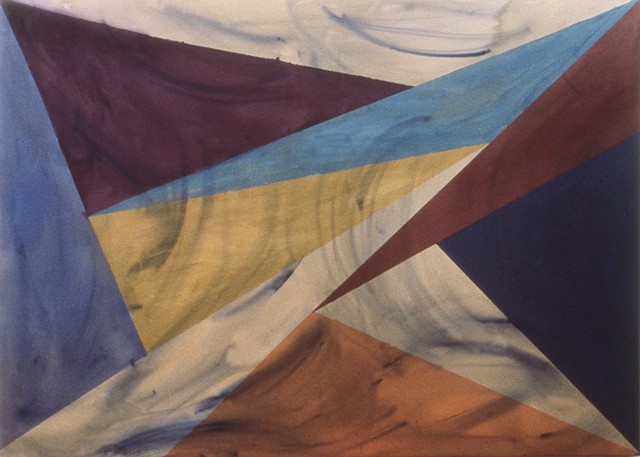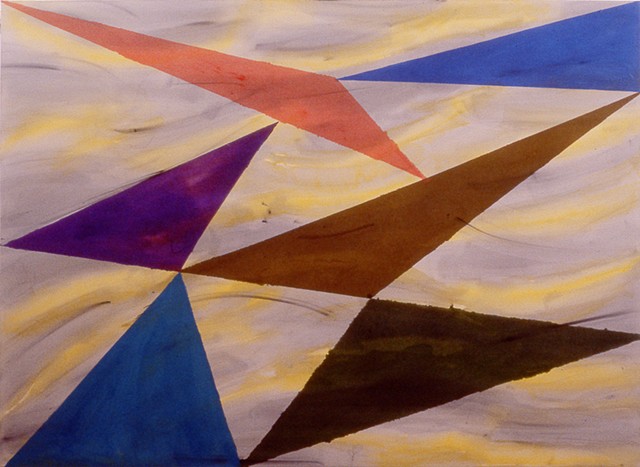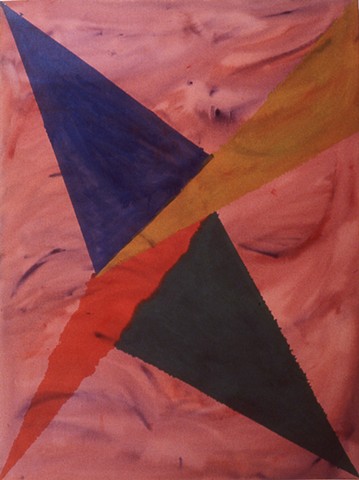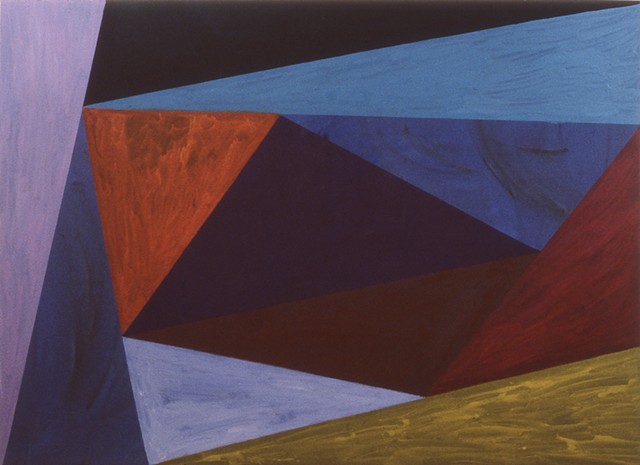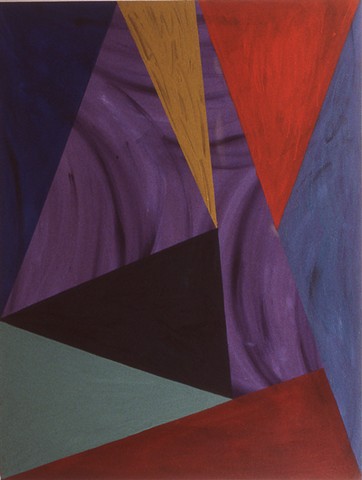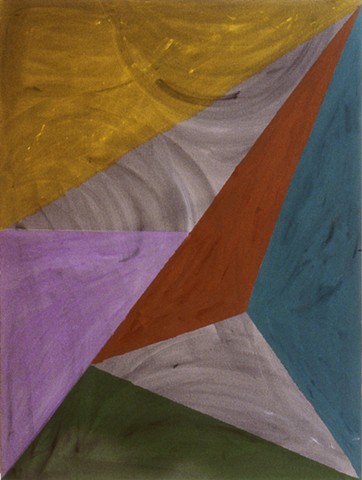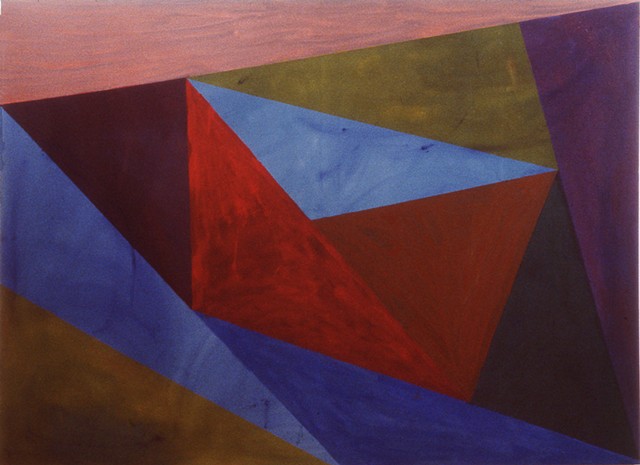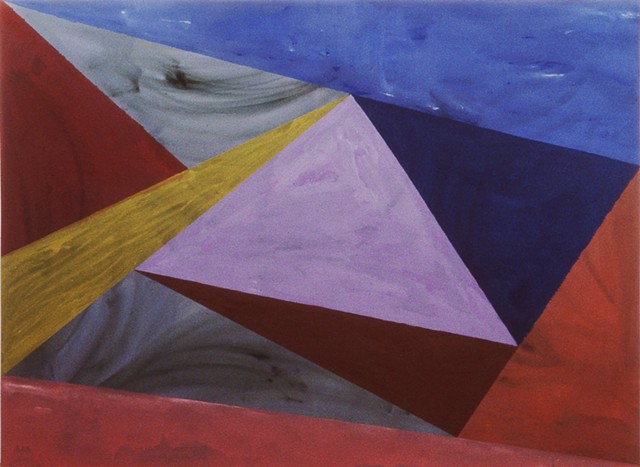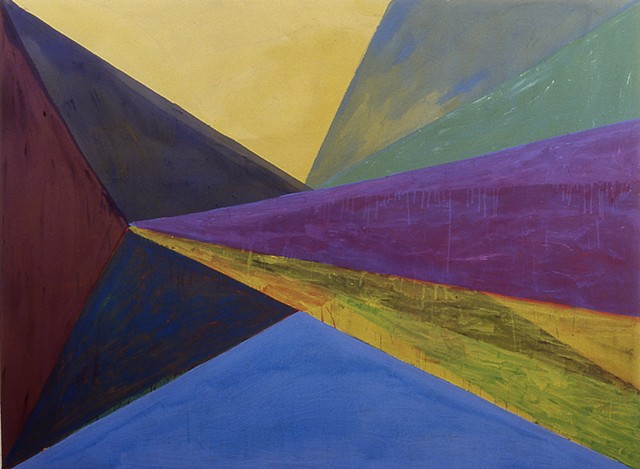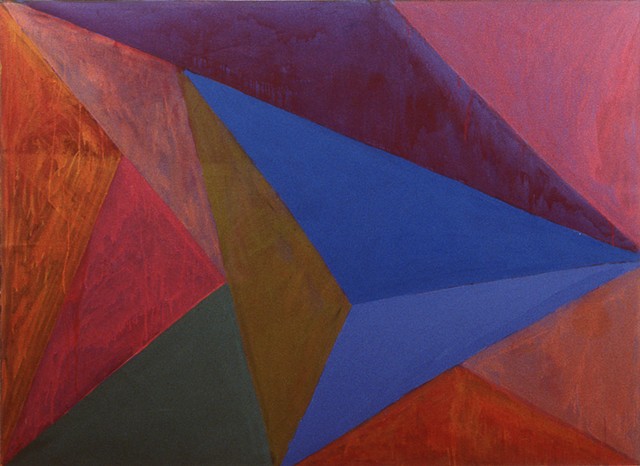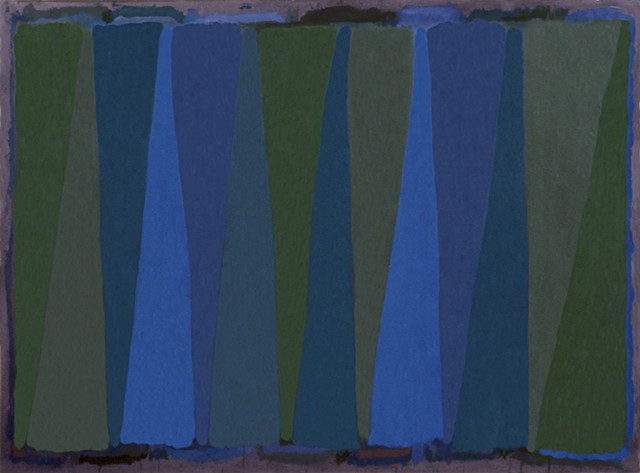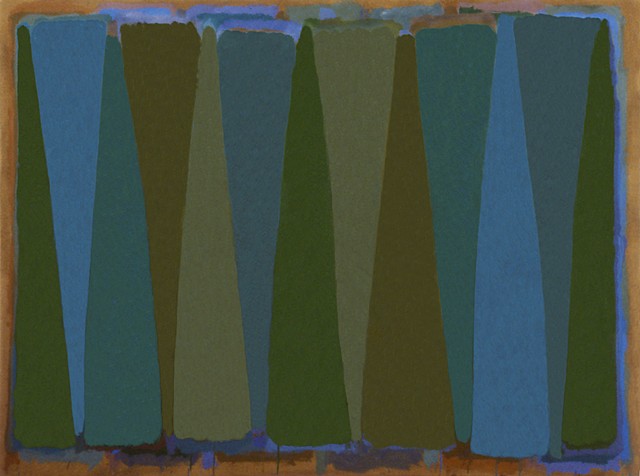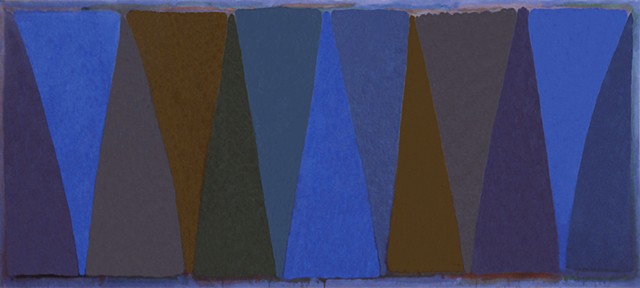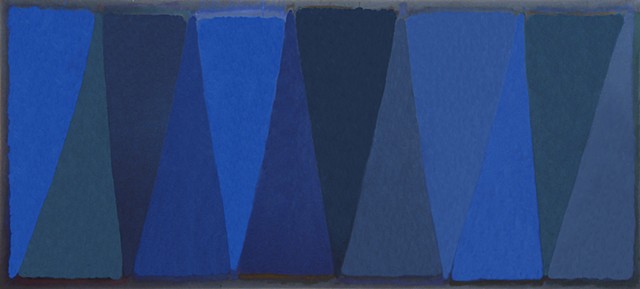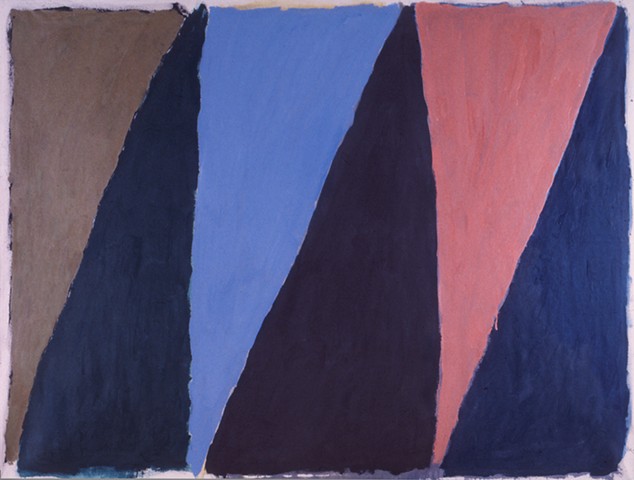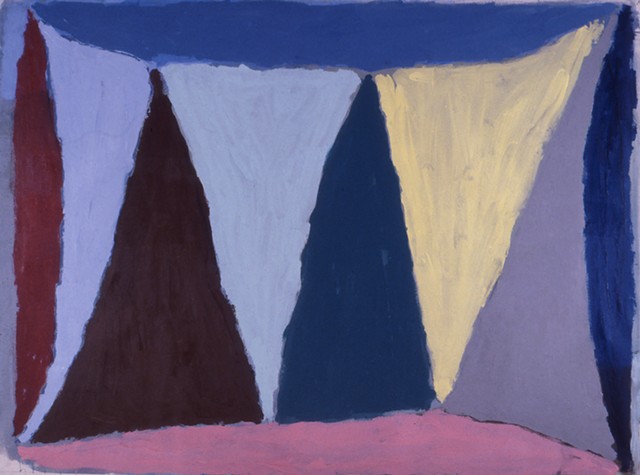Painting (selected) 1979 - 1984
In 1975 I went to art school thinking I would become a portrait painter, in the style of Robert Harris, a 19th century Islander who had made good. Mount Allison came with the reputation of Alex Colville having taught there, and it was close to home, Prince Edward Island. I had done a couple en plein air-painting workshops in Sackville in the summers preceding, which planted a notion of painterliness and the sublime.
When I got there in the fall, the instructor who’d taught the workshops was on sabbatical, temporarily replaced by a Greenbergian. In fact the whole department had been invaded by a crew of younger Americans, which introduced a tension between the traditionalists and what was considered modern art. I’d been exposed to abstraction in childhood art classes; my parents had taken us all to expo 67. Abstraction seemed progressive, and suited my temperament, which wasn’t keen on specifics at that point.
This early abstract work focused on colour relationships in a systematic manner. I moved from brushes to squeegees, from hard edge to more painterly gestures, exploring what we all called figure-ground relationships. Eventually the figure won.
In 1984 I had a painting crisis, precipitated by a short studio visit by Clement Greenberg himself. The postpartum was anti-climatic; he had been polite, but fairly indifferent. I felt like I had to either quit painting or completely change what I was doing.
The squeegee paintings done that year were the last abstracts I made before his visit. I spent the next two years making rough attempts at figurative painting that tried to tell a story; depicting personal experiences that I hoped somehow would be relevant to everyone. They were naive, as one graduate advisor later pointed out. Strangely enough they were what had gotten me into grad school in 1986. They are the missing 4 years on my website, 1984-89, but the full catalogue of them can be found in Monkey Painter, my 200 page illustrated account of Painting at the end of the 20th century (2022).
